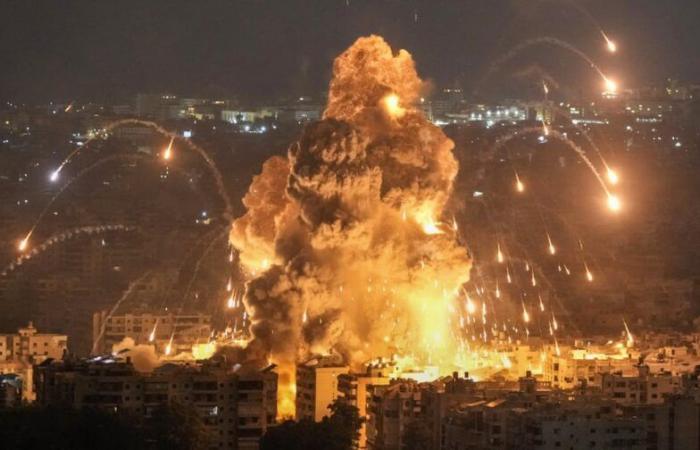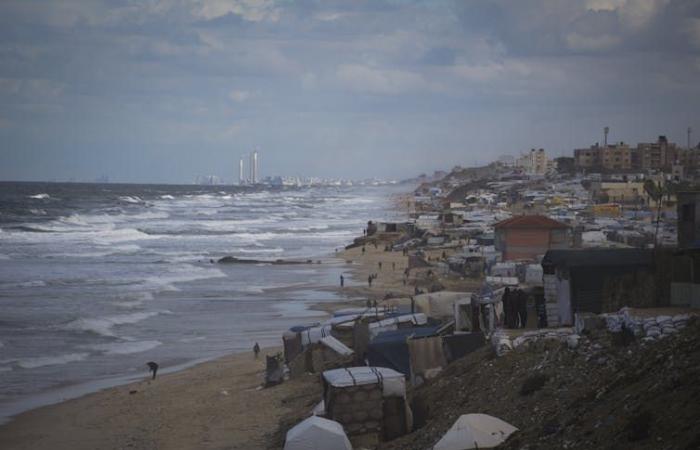If the truce is respected, clashes between Israel and Hezbollah will cease for two months. But will all the provisions of the agreement be respected, starting with the withdrawal of the belligerents from southern Lebanon, and the return of displaced people on both sides of the border? Isn't the conflict likely to move to Syria? And what consequences will the agreement have for Gaza?
The announcement of a ceasefire agreement between Israel and Hezbollah is undeniably good news for a region torn by war for more than a year. It is to be hoped that this truce, which came into effect overnight from Tuesday to Wednesday at 4 a.m. local time, will offer some respite to Lebanese and Israeli civilians.
However, the previous 24 to 48 hours had seen a dramatic increase in violence on both sides. This is a common pattern: fighting often increases in intensity just before a ceasefire takes effect.
My research has shown that while ceasefires may be the least bad option available to actors to reduce violence in war, they are certainly not a panacea.
More specifically, I study the terms of ceasefires and the dynamics that these agreements reflect in order to better understand some of their less immediate consequences than just the cessation of fighting. The truce which has just been agreed between Israel and Hezbollah raises four major questions.
Wael Hamzeh/EPA
What will happen in 60 days?
The ceasefire agreement would include 13 points aimed at ending hostilities between Israel and Hezbollah for 60 days.
In theory, this would allow more than a million displaced people from southern Lebanon and more than 60,000 displaced people from northern Israel to return home.
Allowing Israelis in the north of the country to return to their homes is one of Benjamin Netanyahu's main war goals. Thousands of these displaced people have been housed in hotels across the country for over a year, at great cost to the government, so there is also a real economic motivation behind the government's desire to see them resettled at their home.
However, given the relatively short duration and fragile nature of the ceasefire, it is unclear whether civilians on both sides will seize this opportunity to return home. And this, especially since the scale of the destruction in southern Lebanon is such that it makes it very difficult for residents to return within the relatively short period of the truce.
Joe Biden and Emmanuel Macron have expressed hope that the ceasefire can lead to lasting appeasement, the terms of the agreement provide no details on what will happen once the 60 days have passed.
2. Will the conflict spread to Syria?
A number of conditions detailed in the text aim to limit Hezbollah's ability to rearm during the ceasefire. The agreement notably provides for the dismantling of all unauthorized weapons production infrastructure and facilities in southern Lebanon.
Hezbollah's main patron, Iran, sends it weapons through the territory of Syria. The terms of the ceasefire raise the possibility that Israel could carry out more airstrikes in Syria to ensure weapons from Iran do not reach Hezbollah.
As soon as the ceasefire was announced, Israel struck sites on the Lebanese-Syrian border for the first time, undoubtedly to limit Iran's influence.
3. Lack of details on troop withdrawal
In many ways, the ceasefire builds on United Nations Security Council Resolution 1701, which ended the 2006 war between Hezbollah and Israel.
It is somewhat ironic that the terms of the ceasefire recognize the importance of this resolution when Israel has largely ignored several other UN resolutions calling for a ceasefire in Gaza.
As for Resolution 1701 itself, it has never been fully implemented by either Israel or Hezbollah.
Another clause of the agreement stipulates that, during these 60 days, Israel will gradually withdraw its troops from southern Lebanon.
During this period, the Lebanese army and state security forces will become “the only entities authorized to bear arms or deploy troops” in the area south of the Litani River. Al Jazeera reported that Israel is insisting that Hezbollah leave southern Lebanon before any Israeli soldiers withdraw.
Since the ceasefire provides no specific details on logistical matters, it remains to be seen if and how the Israel Defense Forces will withdraw its troops. Furthermore, the Lebanese army and security forces are generally considered to be grossly underfunded and unable and/or unwilling to challenge Hezbollah's primacy in Lebanon.
Additionally, another term of the ceasefire states that the United States will support indirect negotiations between Israel and Lebanon to achieve an internationally recognized demarcation of their border.
The explicit mention of border negotiations suggests that this could change following the ceasefire. This could mean that Israel could seek additional territory over which it would retain control.
4. What about Gaza?
Netanyahu said the ceasefire would allow Israel to focus its efforts on Hamas fighters in Gaza and its main security concern, Iran.
Other officials called the ceasefire a “crucial change” that would show Hamas that the conflicts in Gaza and Lebanon are decoupled.
Hezbollah had previously insisted it would not agree to a ceasefire until the war in Gaza was over. This new agreement assumes that this condition has been abandoned.
Some observers said a ceasefire with Hezbollah could increase pressure on Hamas to accept a deal with Israel regarding the release of the last Israeli hostages it is holding.
However, this ignores the fact that Hamas has been willing to reach a ceasefire agreement in the past, while the Israeli government blocked negotiations by adding new conditions at the last minute.
Abdel Kareem Hana/AP
Furthermore, Qatar has been so frustrated by the “lack of willingness to engage” and “lack of good faith” from both sides that it recently decided to stop mediating between the parties.
In any case, the ceasefire between Israel and Hezbollah must not distract attention from the fighting in Gaza or the appalling humanitarian situation there.
It remains to be seen how the war in Gaza will evolve from here. Will Israel formally occupy certain parts of the enclave, as several Israeli generals have expressed the wish? Or will the ceasefire with Hezbollah isolate Hamas to such an extent that it will feel like it has even less to lose than it does today?







